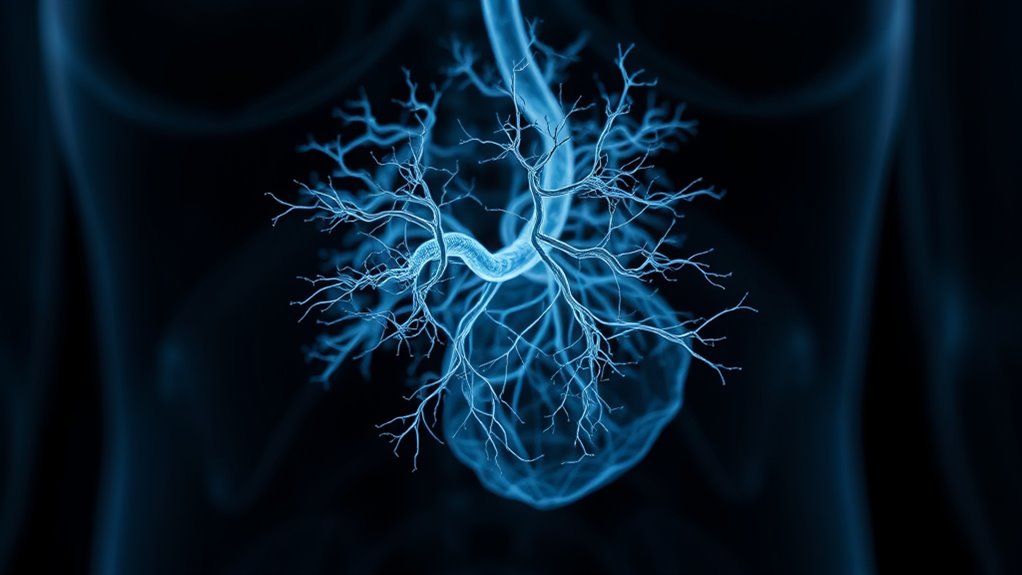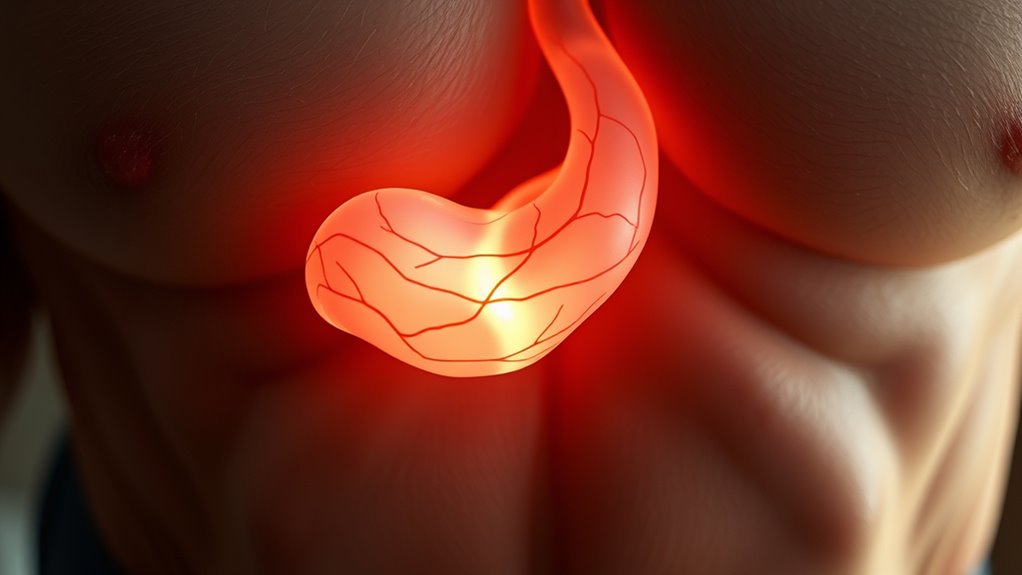A newly discovered organ deep within your body is changing how we comprehend human anatomy. It forms early during development and plays an essential role in shaping your body and training your immune system to distinguish helpful cells from threats. This organ also supports immune regulation throughout your life, affecting your health and disease prevention. Advances in imaging have made it visible, revealing its importance. Keep exploring to uncover more fascinating details about this incredible discovery.
Key Takeaways
- A newly identified organ in the human body, challenging traditional anatomical knowledge.
- Plays a crucial role in immune system development and regulation from embryonic stages onward.
- Supports immune function throughout life, helping prevent autoimmune diseases.
- Discovered through advanced medical imaging techniques that revealed its structure deep within tissues.
- Offers new avenues for treating immune disorders and improving personalized medical therapies.

Scientists have recently identified a new organ in the human body, challenging long-held beliefs about our internal anatomy. This discovery reshapes how you understand your body’s structure and functions, especially during critical processes like embryonic development and immune response. The organ, often hidden deep within tissues, plays a essential role that was previously overlooked. Its existence highlights that your body is more complex than traditional anatomy textbooks suggested.
During embryonic development, this organ forms early and influences how your body structures itself. It acts as a pivotal component in shaping the immune system, helping to train immune cells to distinguish between your body’s own tissues and potential threats like pathogens. This training process is essential for preventing autoimmune responses and ensuring that your immune defenses are effective without turning against your own cells. The organ’s role during these formative stages means it’s integral to establishing a healthy immune function from the very beginning of life. Additionally, recent research indicates that this organ contributes to immune regulation throughout adulthood, supporting ongoing health and defense mechanisms.
Understanding how this organ develops can give you insight into various health conditions. For example, abnormalities in its formation may contribute to immune deficiencies or autoimmune diseases. Recognizing its significance during embryonic development allows scientists and medical professionals to better understand how immune-related disorders originate and how they might be prevented or treated. The organ’s contribution to immune function is not just about early development; it also supports ongoing immune responses throughout your life.
You might wonder why this organ went unnoticed for so long. Its location and subtle structure made it difficult to detect with earlier imaging techniques. Modern advances in medical imaging, however, have enabled researchers to visualize it clearly, revealing its true importance. Its discovery emphasizes that our understanding of human anatomy is still evolving, and there are likely more hidden structures yet to be uncovered. This finding underscores the importance of advanced imaging techniques in discovering new aspects of human anatomy.
The recognition of this new organ also has implications for medicine and health care. It opens pathways for innovative treatments targeting immune system disorders, and it could lead to breakthroughs in how we approach vaccines, autoimmune diseases, and even cancer therapies. By focusing on this organ’s functions and development, scientists aim to develop more precise, personalized medical interventions that leverage its role.
Frequently Asked Questions
How Does This Organ Impact Overall Human Health?
Understanding how this organ impacts your overall health is vital. Its function influences many systems, affecting your immune response, toxin removal, and nutrient absorption. If it doesn’t work properly, you might face health implications like inflammation or disease. Paying attention to its health helps maintain balance in your body, ensuring peak functioning. Recognizing its role emphasizes the importance of supporting this organ through lifestyle choices and medical care.
Can This Organ Regenerate After Injury?
When it comes to organ regeneration, you might think it’s a tall order, but many organs have remarkable abilities. This new organ can indeed recover from injury, aiding in injury recovery. While it might not fully regenerate every time, your body has some tricks up its sleeve. Advances in science are ongoing, so stay hopeful—your body’s resilience is often stronger than you realize.
Are There Diseases Specifically Linked to This Organ?
You might wonder if this organ has specific diseases linked to it. Research shows that disruptions in molecular pathways and changes in genetic markers can lead to certain conditions affecting it. These markers help identify diseases early, allowing for targeted treatment. Recognizing these links is vital, so you should stay informed about ongoing studies. This knowledge can improve diagnosis and open new avenues for therapies related to this organ.
How Was This Organ Previously Overlooked by Scientists?
Historical oversight often obscured this organ’s existence, making researchers overlook its role. Due to research challenges like its hidden location and subtle signals, scientists previously dismissed it as insignificant. You might imagine the organ as a secretive, silent sentinel, slipping past scientific sight. Its small size and complex connections caused it to be overshadowed by more prominent organs, leading to the misconception that it was merely a myth until recent discoveries illuminated its true importance.
Will This Discovery Change Medical Treatments?
You might wonder if this discovery will change medical treatments. It’s likely, as future research will explore new ways to target or support this organ, enhancing patient care. However, it also raises ethical considerations, like how to handle treatments responsibly. As scientists investigate further, you can expect advancements that could improve health outcomes, but it’s essential to guarantee ethical practices to ensure safe, effective medical applications.
Conclusion
So, now you hold the key to a hidden world within your own body, a silent guardian waiting to be understood. This newfound organ is like a secret garden, lush and mysterious, quietly shaping your well-being. As you unravel its secrets, you realize you’re stepping into a new chapter of self-awareness—one where every part plays an essential role in your symphony of health. Embrace this discovery, and let it deepen your connection to your incredible body.









